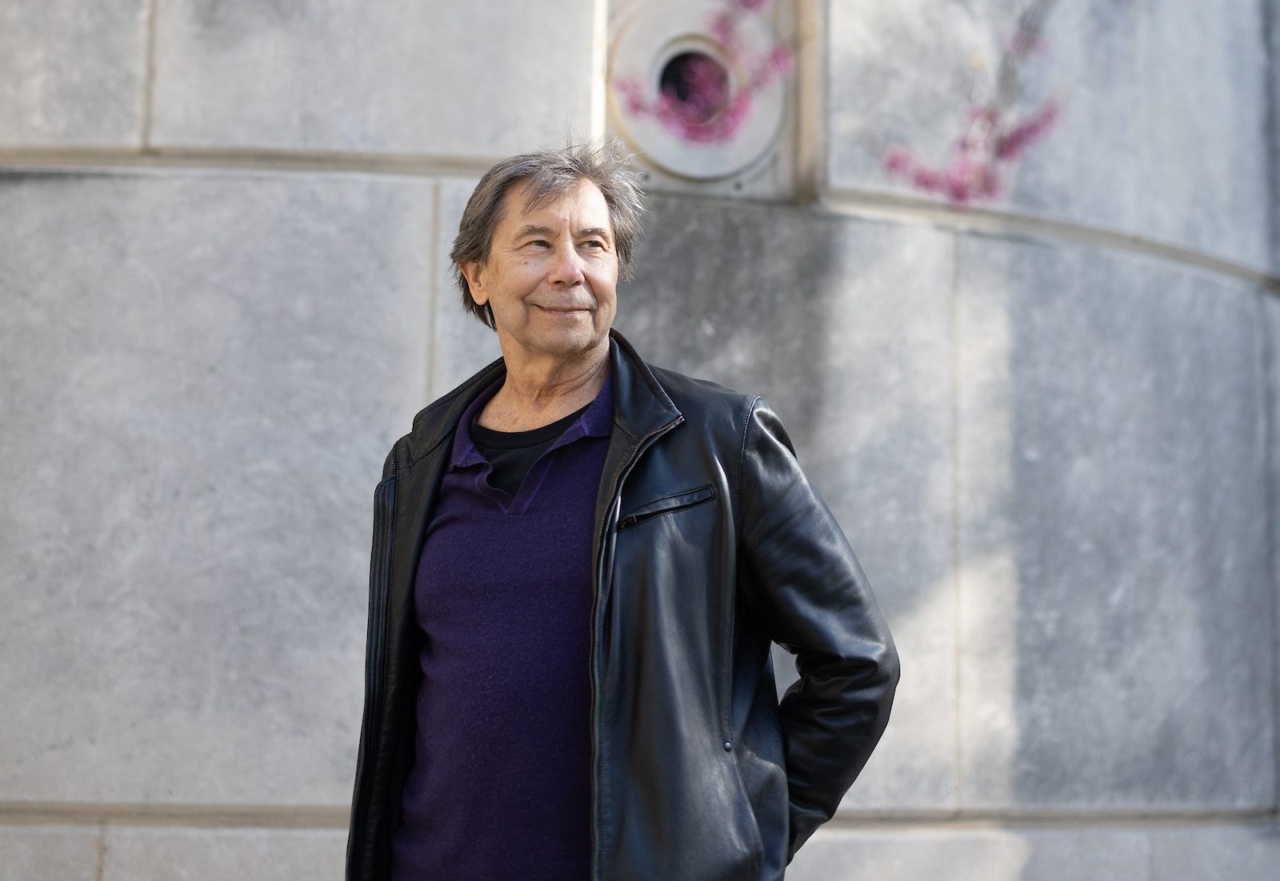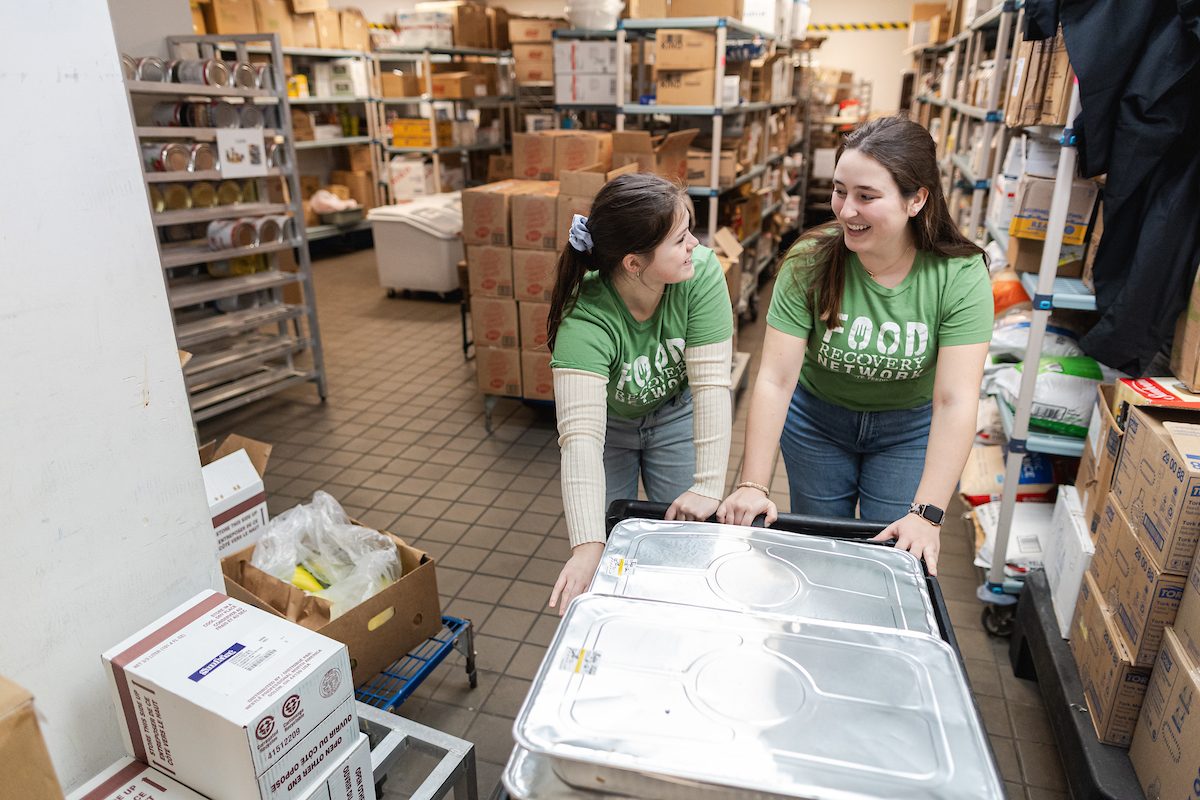Fashion and compassion: Nonprofit, thrift store benefit underserved communities
April 9, 2024

On a recent Friday in Chicago’s Avondale neighborhood, Mireya Fouché sits in a wrought-iron chair on the sales floor of Monarch Thrift Shop. The shop is colorful, cheerful, and vibrant, with window displays depicting thoughtfully arranged donated items in color-coordinated reds and pinks. A chalkboard sign near the entrance reads, “Thanks for being you!”
A large mural of a monarch butterfly accompanies the shop’s mission pillars: breaking cycles of youth homelessness, rebuilding lives, and reducing recidivism.
Fouché, a Baumhart-Schreiber Scholar in Loyola’s Quinlan School of Business, holds a canary-yellow dress and recounts its journey in her life—the exhilaration of winning the shop’s first award for humanitarian achievement and the sorrow of her infant son’s hospitalization with pneumonia days later. She recently added the dress to the store’s donation bin so it could have a new life with its next owner.
“There’s something just very special about donating clothes and buying pre-worn clothes,” Fouché says. “You’re living a different experience but through the same outfit.”
Even beyond her role as co-founder of the thrift shop, which offers paid job training to homeless youth and people who have been incarcerated, Fouché is also making a significant impact as the founder of the nonprofit One Heart One Soul.
The organization has brought about positive change with art classes, jobs, and community support for homeless youth and incarcerated women.
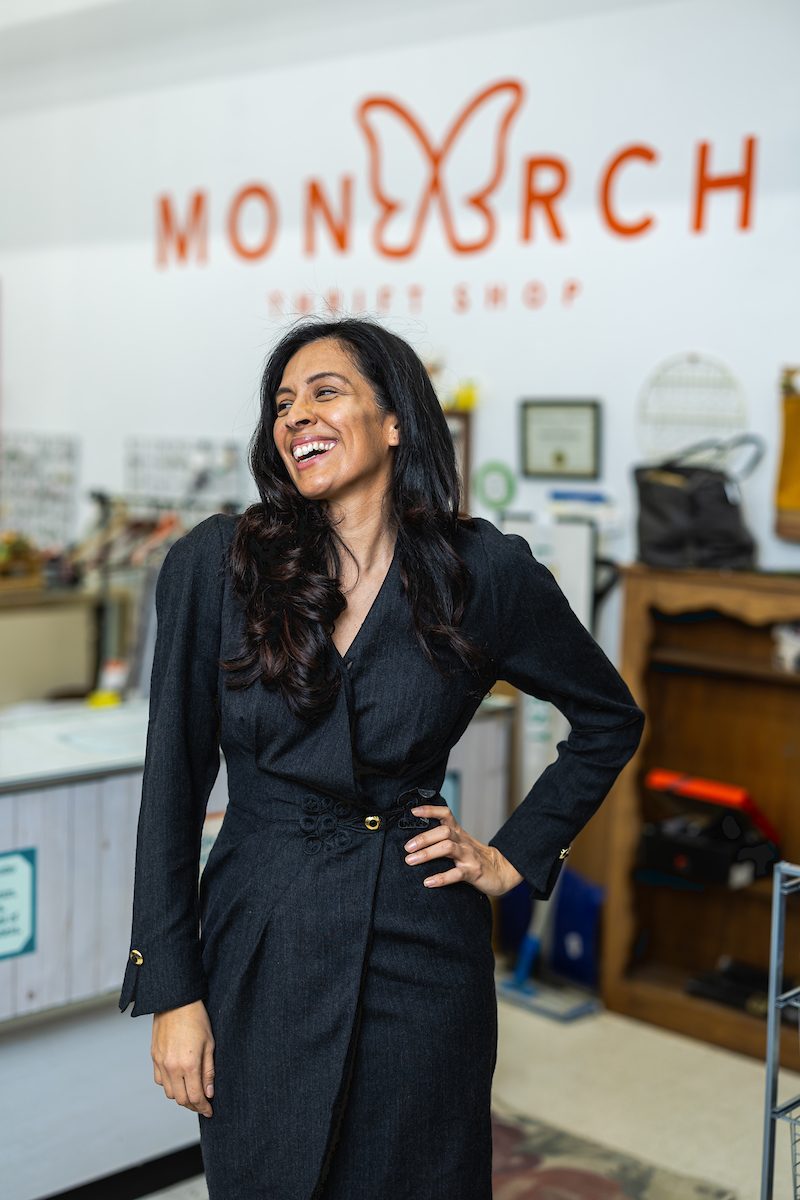
Journey to impact
Before Fouché began her transformative service work, her aspirations were rooted in a different realm: the world of fashion.
In 2005, Fouché moved from Chicago to Los Angeles to pursue a degree in fashion merchandising at the Fashion Institute of Design and Merchandising. As a first-generation college student, Fouché navigated the financial processes of higher education on her own and found herself unable to afford Los Angeles’s high cost of living along with the cost of her education.
“I lost my roommate. I couldn’t find a replacement. I became homeless.” Fouché says. “That experience kind of shifted the trajectory of my path.”
Fouché began to travel light. She lived out of a carry-on suitcase. She learned that for the price of a small cup of coffee, she could spend an entire day at Starbucks.
Other days, she passed the time in the school library. She took on more classes to help fill the time. She learned that a YMCA membership was inexpensive and provided her with a place to shower. A friend would often sneak her into her dorm for the night, defying the school’s policy prohibiting overnight guests.
“I was quiet about my experience,” Fouché says. “I didn’t even fully realize I was homeless until years later when I started to research and learn more about legal definitions of homelessness.”
Fouché eventually secured a resident assistant position that allowed her to pivot out of homelessness. She went on to earn her degree and led a successful career in production for a global fashion company. However, “I felt it’s just not what I was called to do,” Fouché says.
“I left the industry, I came back to Chicago, and then I asked myself, ‘What about the youth who are experiencing homelessness that don’t have an option to go back home?’”
Fouché’s personal experience with homelessness and economic instability helped her form the idea for a nonprofit that could leverage her artistic strengths.
“When I was experiencing homelessness, [art] was one of my saving graces,” she says. “I was heavy into poetry, heavy into sketching, into drawing. Anything that would take me out of the current element was my saving grace.”
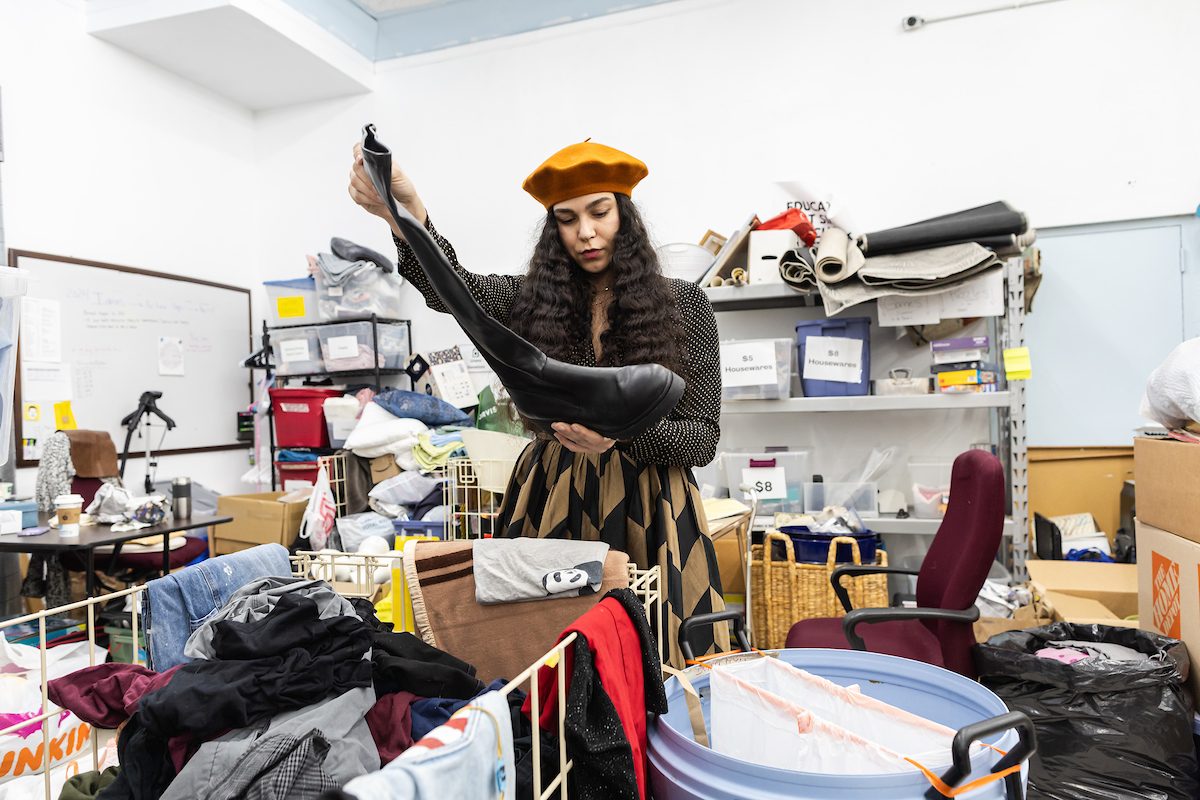
Called to action
In 2010, Fouché launched One Heart One Soul. The nonprofit addresses the needs of homeless youth by using art as a tool for connection and empowerment. At that time, Fouché says, money for the arts was hard to come by.
“There definitely was no funding for shelters to be like, ‘Hey, let’s tap into art,’” she says. “So the question at that time was, ‘What if we bring the
art supplies and the art teachers into the shelters and just provide workshops with youth as a way to tap
into creativity?’”
Getting One Heart One Soul off the ground took a lot of work. It wasn’t until the organization’s third year that it received its first financial donation of $1,000.
“It’s really been supported by individuals more than corporations and grants. One Heart One Soul has lasted since 2010 because individuals have donated. Not grants, not government support, not corporations. It’s really a people-driven organization,” she says.
Studies show that a powerful correlation exists between creativity and success in life, and this creativity promotes resiliency for people experiencing homelessness.
“People always think that art is just painting or writing, but art challenges you to create. And it’s not just creating on a piece of paper. But also, how do you create solutions? How do you create outlets? How do you create systems?” Fouché says. “When you start to think of creating art on a piece of paper or canvas, you carry that mindset and that thought process into real life.”
For 12 years, Fouché taught art programming to homeless youth, helping them process their circumstances. Then, in 2015, Fouché launched Monarch Thrift Shop with co-founder Christa Clumpner
Cauley (MA ’03). The two connected at Emmaus Ministries, a nonprofit that serves male sex-trafficking survivors. Cauley says Emmaus Ministries saw an opportunity to “develop a business that had all the expectations of a regular job but had a lot of extra grace built in.”
The thrift shop is a community partner of One Heart One Soul’s Retail Social Enterprise, which offers paid job training to homeless youth.
Monarch Thrift Shop also partners with restorative justice organizations and the Illinois Department of Corrections to provide employment opportunities to reduce recidivism in previously incarcerated individuals.
The two organizations are legally separate entities with their own strategic plans and finances but, because they serve the same population, they’re able to partner on projects like job training and support the same initiatives.
In 2023 alone, the Retail Social Enterprise invested over 2,000 hours in job training and learning opportunities in its participants. Monarch Thrift Shop served more than 3,000 customers and processed more than 50,000 pounds of clothing and housewares, providing both a human and environmental impact.
Running Monarch Thrift Shop has enabled Fouché to merge her fashion know-how and artistic interest with her mission to serve homeless individuals and people who have been incarcerated.
“I have created the ability to live in the world of fashion—because I still love fashion—but work in a space that is impactful,” says Fouché.
Cauley credits Fouché’s creativity as a contributor to the store’s success. “The whole way the store is laid out is all her brain child. She knows so much about fabrics and clothes and fashion so it just helps all of our clients,” Cauley says.
“There’s a correlation between youth homelessness and adult incarceration, so let’s cater to both. Let’s provide healing and creative outlets to both spaces, because they both experience very similar trauma and very similar lived experiences.”
— Mireya Fouché , Baumhart-Schreiber Scholar in Loyola's Quinlan School of Business
Mutual growth
After experiencing so much instability while getting her bachelor’s degree, the process of getting a master’s degree took time. A single mother to an 8-year-old son, Fouché wanted a program that gave her flexibility. But she says the price tag of a master’s degree gave her pause. With encouragement from a friend, she researched Loyola’s Baumhart-Schreiber Scholars MBA program.
The highly selective program seeks to support professionals who want to generate profit with a purpose with a $20,000 scholarship, mentorship, and networking opportunities. Fouché was accepted to the program after she submitted an application and sat for an interview. She’s now in a small cohort with “the same hearts,” she says.
“We all share our own journey, but we’re all supportive of one another,” Fouché says. “I feel that I can continue to grow in education, and I continue to be open to different thought processes and different possibilities for creating solutions.”
As she continues her MBA studies while working at the thrift store and the nonprofit, Fouché remains determined to succeed.
“It’s not a pain factor for me. It’s really just a joyful process,” she says.
As One Heart One Soul and Monarch Thrift Shop grew, Fouché had to adapt to allow the organizations to evolve to reach their full potential.
“I didn’t want to let go of workshops and being in the spaces,” Fouché says. “You have to move yourself out of positions so that other people with fresh ideas and fresh perspectives and fresh creativity can come in and do something different.
“I understand that change is needed to grow. So the decision came because I knew that there’s so many more amazingly talented artists and creatives who can do things at a great and greater level.”
This development has allowed her to focus more on sustaining the organizations financially, and Fouché has been able to apply her studies to analyze business data and create metrics and key performance indicators to support her organizations’ long-term success.
“Being part of the MBA program is really helpful,” Fouché says.
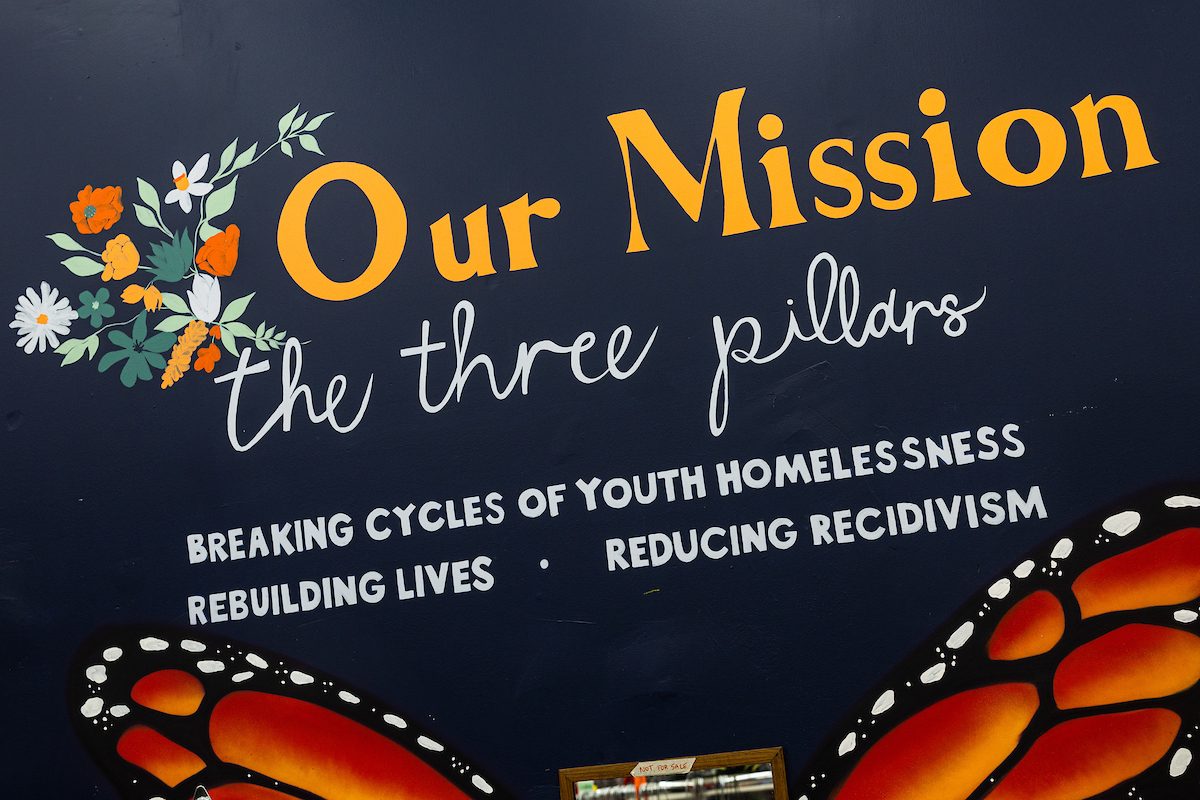
In 2022, One Heart One Soul received the opportunity to adapt its art programming for a new demographic: incarcerated women in the Cook County Department of Corrections. Initiated a year and a half ago, the Art & Well-being program has thrived and expanded.
The program offers an introductory class and a more advanced class for people who want to explore different mediums. It served over 280 participants in 2023. Sheyssa Rosado is one of the program’s art teachers.
“I love the impact that it makes on women,” Rosado says. “These women have actually taught me a lot about patience and understanding.”
Fouché wants to keep the program alive and continue to enable its expansion to allow it to flourish. She says the next step for One Heart One Soul’s team is to crunch data on the pilot program to ensure that it remains beneficial to participants.
“There’s a correlation between youth homelessness and adult incarceration, so let’s cater to both,” Fouché explains. “Let’s provide healing and creative outlets to both spaces, because they both experience very similar trauma and very similar lived experiences.”
Looking ahead
Fouché has big plans for the continued growth of her organizations, from pop-up shops to art exhibits. She’s focusing on intentional expansion for both Monarch Thrift Shop and One Heart One Soul that allows the organizations to serve more people. She hopes to be able to provide a job to anyone who wants to work for Monarch Thrift Shop. However, the organization needs more support to realize this goal.
“We don’t have enough funding to provide all the employment that we want to,” she says. “A great dream of ours is to be able to hire the community because the community needs employment, they want employment, but they just can’t find it.”
Over the years, Fouché has kept much of the art from participants in her programs. She hopes to use this to create “a traveling art exhibit that really sparks conversations about youth, homelessness, and honors individuals and their vulnerability.” “I want to share their story to as many spaces as we can,” she says.
